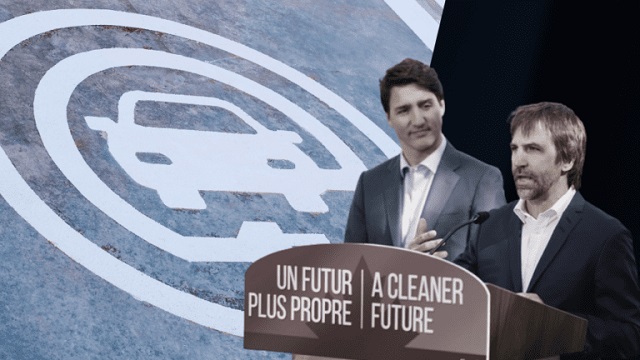Business
‘Got To Go’: Department Of Energy To Cut Off Billions Of Dollars’ Worth Of Biden-Era Green Energy Projects


From the Daily Caller News Foundation
By
“A lot of the push to keep these subsidies alive isn’t about good energy policy — it’s about keeping industries afloat that can’t meet reliability and affordability standards on their own.”
Energy Secretary Chris Wright said on Friday that his agency plans to cut billions in grant funds for Biden-era loans as the Trump administration conducts a review of the department’s $400 billion clean energy investments, a decision that energy policy experts who spoke with the Daily Caller News Foundation cheered on.
Before leaving office, former President Joe Biden squeezed $25 billion into the Department of Energy’s (DOE) Loan Programs Office (LPO) for various projects, with the bulk of the funds going toward renewable energy development. Wright’s newly announced plans to review and cancel a majority of the loans has the backing of several energy policy experts who told the DCNF that the LPO has stripped cash from taxpayers and contributed to U.S. grid instability.
“We’ve got a lot of reasons to be worried and suspicious about that,” Wright told Bloomberg in response to a question about the LPO. “Some of these loans will go forward, some of it, it’s too late to change course. A lot of them won’t go forward, but that’s a very careful review process that we’ve just put in place and just got a team to execute on.”
The LPO has previously dished out loans for nuclear energy, an industry championed by the Trump administration. However, among the loans finalized after the election were $6.57 billion to an electric vehicle manufacturing facility in Georgia and $289.7 million to solar energy development and battery storage in Massachusetts.
“[The LPO] may have been well-intended, but it’s morphed into a clean energy slush fund that dooms energy projects by making them tied to federal funding,” Gabriella Hoffman, the director of the Center for Energy and Conservation at Independent Women’s Forum wrote to the DCNF. “LPO investing currently undermines competition and market innovation of energy technologies. In the event it stays, however, it must be radically reformed to not prop up reliable energy sources like solar and wind.”
Notably, the rush to get these loans greenlit under Biden prompted a November inspector general report, which highlighted several potential risks to taxpayers related to the LPO, including concerns that the office may be moving too quickly to distribute funds, possibly at the expense of properly vetting loan applicants.
Other noteworthy projects approved under Biden’s watch included a $2.5 billion in loan for EV technology, 1.45 billion for a solar manufacturing facility in Georgia and $584.5 million for a solar photovoltaic (PV) system with an integrated battery energy storage system in Puerto Rico.
Founded in 2005, the loan office was created to help advance clean energy infrastructure, and it was increasingly active under the Obama administration, which approved a $535 million loan to Solyndra, a green energy company that collapsed just two years later. Activity slowed during President Donald Trump’s first administration, but under Biden, the office received a massive funding boost from Congress — totaling $400 billion — to support green tech firms.
“These past four years have been the most productive in LPO’s history,” LPO wrote in a fact sheet three days before Trump returned to the White House. “Under the Biden-Harris Administration, the Office has announced 53 deals totaling approximately $107.57 billion in committed project investment – approximately $46.95 billion for 28 active conditional commitments and approximately $60.62 billion for 25 closed loans and loan guarantees.”
“If the government’s going to use my money as a taxpayer through LPO investments, that money should be going to investments that actually provide reliable power,” André Béliveau, senior manager of energy policy at the Commonwealth Foundation told the DCNF. “A lot of the push to keep these subsidies alive isn’t about good energy policy — it’s about keeping industries afloat that can’t meet reliability and affordability standards on their own.”
While the majority of the LPO’s support in Congress and the White House has come from the left, some right-of-center organizations recently urgedWright on April 14 to “preserve” the LPO for the sake of “American dominance.” The organizations argue that the LPO plays a “critical role” in enabling “new nuclear power development.”
“LPO continues to play a critical role in financing infrastructure that enables new nuclear power development, revitalizes domestic mineral production, and modernizes both grid and gas systems — all central to the administration’s goals of lowering energy costs, reshoring manufacturing, and achieving energy dominance,” the letter reads.
Subsidizing energy projects that are not able to survive on their own in the free market is questionable, Amy Cooke, the co-founder and president of Always on Energy Research and the director of the Energy and Environmental Policy Center, told the DCNF. “The calls to eliminate it are well-founded, and at the very least, it should be dramatically reformed,” she said. “If the market isn’t interested in it, is it the responsibility of the Department of Energy to fund [these projects]?” she asked.
“We should be funding improvements for firming the grid and not arbitrarily add more intermittency,” Béliveau said in reference to wind and solar projects that provide less inertia — the grid’s ability to continue running smoothly after a disturbance occurs between energy supply and demand for the electrical grid.
“If it’s going to exist, then reforms need to make sure that we’re being good stewards of taxpayer dollars,” he added, pointing to natural gas and nuclear as options that could help “firm the grid.”
“The Trump administration’s version of energy dominance has created a source-neutral way of picking winners and losers,” he continued, noting that reliability, affordability and security are the priorities of the administration, as opposed to a climate-change centric approach to energy policy.
Trump declared a national energy emergency on his first day back in office and signed an executive order to boost domestic energy generation. He signed a series of other EOs within his first 100 days in office to speed up the permitting process and clear red tape for several industries including coal and critical mineral mining.
Business
Senator wants to torpedo Canada’s oil and gas industry

From the Fraser Institute
Recently, without much fanfare, Senator Rosa Galvez re-pitched a piece of legislation that died on the vine when former prime minister Justin Trudeau prorogued Parliament in January. Her “Climate-Aligned Finance Act” (CAFA), which would basically bring a form of BDS (Boycott, Divestment, and Sanctions) to Canada’s oil and gas sector, would much better be left in its current legislative oblivion.
CAFA would essentially treat Canada’s oil and gas sector like an enemy of the state—a state, in Senator Galvez’ view, where all values are subordinate to greenhouse gas emission control. Think I’m kidding? Per CAFA, alignment with national climate commitments means that everyone engaged in federal investment in “emission intensive activities [read, the entire oil and gas sector] must give precedence to that duty over all other duties and obligations of office, and, for that purpose, ensuring the entity is in alignment with climate commitments is deemed to be a superseding matter of public interest.”
In plain English, CAFA would require anyone involved in federal financing (or federally-regulated financing) of the oil and gas sector to divest their Canadian federal investments in the oil and gas sector. And the government would sanction those who argue against it.
There’s another disturbing component to CAFA—in short, it stacks investment decision-making boards. CAFA requires at least one board member of every federally-regulated financial institution to have “climate expertise.” How is “climate expertise” defined? CAFA says it includes people with experience in climate science, social science, Indgineuous “ways of knowing,” and people who have “acute lived experience related to the physical or economic damages of climate change.” (Stacking advisory boards like this, by the way, is a great way to build public distrust in governmental advisory boards, which, in our post-COVID world, is probably not all that high. Might want to rethink this, senator.)
Clearly, Senator Galvez’ CAFA is draconian public policy dressed up in drab finance-speak camouflage. But here’s what it would do. By making federal investment off-limits to oil and gas companies, it would quickly put negative pressure on investment from both national and international investors, effectively starving the sector for capital. After all, if a company’s activities are anathema to its own federal regulators or investment organs, and are statutorily prohibited from even verbally defending such investments, who in their right minds would want to invest?
And that is the BDS of CAFA. In so many words, it calls on the Canadian federal government to boycott, divest from, and sanction Canada’s oil and gas sector—which powers our country, produces a huge share of our exports, and employs people from coast to coast. Senator Galvez would like to see her Climate-Aligned Finance Act (CAFA) resurrected by the Carney government, whose energy policy to-date has been less than crystal clear. But for the sake of Canadians, it should stay dead.
Automotive
Opposition Conservatives fail in attempt to “Pull the Plug” on Carney’s Electric Vehicle Mandate

From Conservative Party Communications
After a Lost Liberal Decade of rising costs and slow growth, Mark Carney wants you to think his government has moved on from Justin Trudeau’s failed policies.
Unfortunately for Canadians, Carney has no interest in scrapping one of his predecessor’s most reckless and costly ideas: a zero-emissions vehicle (ZEV) mandate starting next year that will ultimately ban Canadians from buying gas-powered cars by 2035.
As the required percentage of ZEV sales increases each year, the government wants to force manufacturers and importers to buy costly credits of up to $20,000 for every EV they are short of the Liberals’ quota – a huge expense that will ultimately be passed on to, and paid by Canadian consumers.
That’s why Conservatives have introduced a motion to end this harmful scheme, ensuring Canadians can continue to buy the kind of car they need at a price they can afford.
EVs are great for many families, who should always be free to purchase the vehicle of their choice. But for many Canadians – who live in cold environments or travel long distances – they can be practically useless, especially without the infrastructure to power them.
One government report estimated that changes to Canadian infrastructure required to support a transition to ZEVs could cost up to $300 billion by 2040. On top of the costs already imposed on manufacturers and buyers, this policy will require billions in new tax dollars and government debt.
No wonder one 2024 survey found two thirds of Canadians find the 2035 target is unrealistic.
As unjust tariffs threaten an automotive sector which contributes billions to our GDP, the Liberals continue to put their elitist, top-down ideology ahead of the livelihoods of hundreds of thousands of proud Canadian workers.
While Carney talks about change, Conservatives are here to deliver. That’s why we’re fighting to repeal the ZEV mandate, scrap the industrial carbon tax and cancel Liberal fuel standards. We trust Canadians – not Ottawa’s Liberal elite – to make the best decisions for themselves and their families.
It’s time to put Canadians back in the driver’s seat.
-

 Alberta2 days ago
Alberta2 days agoCalls for a new pipeline to the coast are only getting louder
-

 Business2 days ago
Business2 days agoCanada’s economic pain could be a blessing in disguise
-

 Censorship Industrial Complex2 days ago
Censorship Industrial Complex2 days agoJordan Peterson reveals DEI ‘expert’ serving as his ‘re-education coach’ for opposing LGBT agenda
-

 Alberta2 days ago
Alberta2 days agoUnified message for Ottawa: Premier Danielle Smith and Premier Scott Moe call for change to federal policies
-

 Economy2 days ago
Economy2 days agoOttawa’s muddy energy policy leaves more questions than answers
-

 Education2 days ago
Education2 days agoStudents can’t use AI to cheat on standardized tests
-

 International2 days ago
International2 days agoTrump puts new price tag on Canada joining “Golden Dome”
-

 conflict2 days ago
conflict2 days agoTrump dismisses US intelligence that Iran wasn’t pursuing nuclear bomb before Israeli attack







